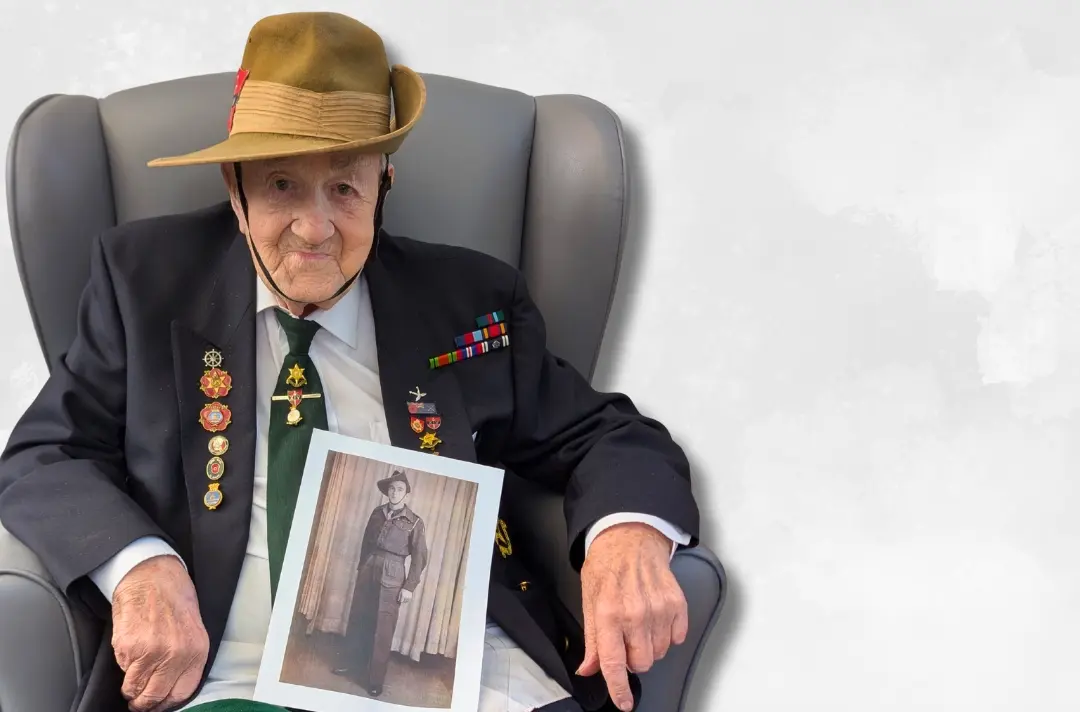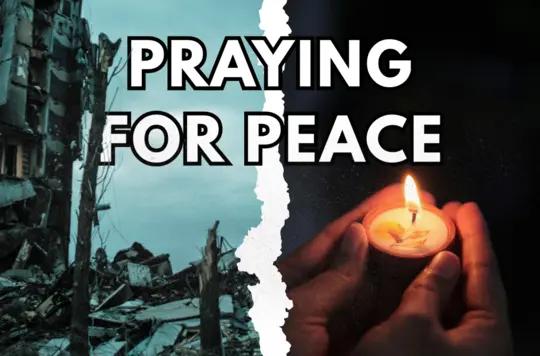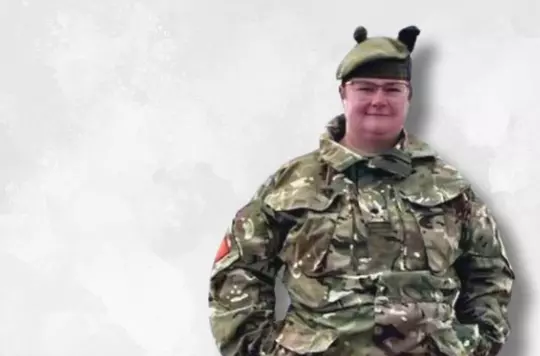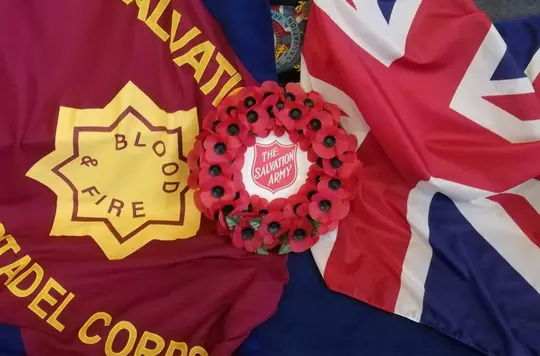4 November 2025
A cup of tea in Burma

As he celebrates his 100th birthday, Vic Stone shares how The Salvation Army has supported him through war and peace.
Vic Stone was welcomed as an adherent at Sheerness Corps last year. A Burma Star recipient, the centenarian remembers that the Army was present in his early childhood after the death of his father.
‘I grew up at a time when it was accepted that children were seen but not heard,’ Vic relates. ‘I wouldn’t say a word to anybody. I didn’t speak unless I was spoken to. One Sunday afternoon, my mother told me to get my coat on and away we went. We turned right at the corner of our street and there was the Salvation Army hall.
‘My mother spoke to the officer in charge, who welcomed me, and I became a regular, and was enrolled as a junior soldier. Somewhere in my loft is my attendance card with all the blue stamps on it!’
Vic fondly reminisces how he found comfort at the Army: ‘At school I was always bullied, but at the Army the atmosphere made me feel comfortable and happy. People would put their arm around you if you were upset.
‘I have an idea that the Army helped my mum find a new flat in Fulham. As we had both been born there, we moved back home. My life also picked up; I made friends at school and was in the local football team.’
After being evacuated from London to Guildford because of the Blitz, in 1944 Vic was called up for military service and sent to Burma. At the time Burma was a British colony. In December 1941 it had been invaded by the Japanese Empire, one of the Axis powers, forcing the British into retreat to India. In early 1945, after several attempts, British and Allied forces managed to re-enter Burma. Despite being shipwrecked in a terrible storm during his training, Vic was not deterred. Following their training, his motorboat unit was part of a supply route transporting equipment back and forth along the Chindwin and Irrawaddy Rivers to aid in the recapture of Mandalay.
Before his enlistment, Vic knew little about Burma and the Japanese troops.
‘In battle, they would line up in their hundreds and make a dash, screaming and brandishing a sword or a bayoneted rifle,’ he recalls. ‘All our chaps could do was sit on the ground with a Bren gun and shoot back. They lost so many men.’
Following a trip back to Calcutta to collect more boats for the planned invasion of Rangoon, The Salvation Army once more appeared in Vic’s life at Rangoon harbour: ‘We came off a troopship and formed up into a column to march away. Suddenly we heard some English voices shouting. We realised it was a chap and two ladies with a Salvation Army tea wagon. They were shouting and dancing up and down, waving teacups.’
He chuckles: ‘Unfortunately, our sergeant-major screamed: “Orders are orders, keep marching!”’
Vic’s unit was billeted in an old iron foundry and the same Salvation Army tea wagon made the effort to follow the troop column to give Vic and his comrades a cup of tea.
‘They had come and found us,’ he smiles. ‘We had free cups of tea and free packets of biscuits. It was wonderful!’
After being demobbed in 1947, Vic married and had a family. The Salvation Army continued to be in his life, supporting his family when his daughter went missing and successfully locating her through the Family Tracing Service. On Remembrance Sunday last year, Vic was welcomed as an adherent after being inspired by the testimony of his friend, Steve.
‘I was standing behind Steve listening to what he was saying,’ Vic testifies. ‘It’s as if there was a presence in the air, and it suddenly hit me: “This is for me.” After all these years, during the war in particular, the Army has helped and guided me.’
Discover more

Resources to lead prayers for peace during gathered worship, in a meaningful and transformative way.

Captain Amy-Jo Battersby (Parkhead with Dennistoun) talks to Major Lynne Shaw about war, Remembrance Sunday and the difference love makes.

